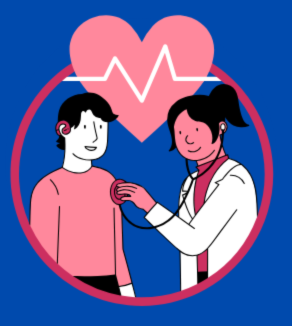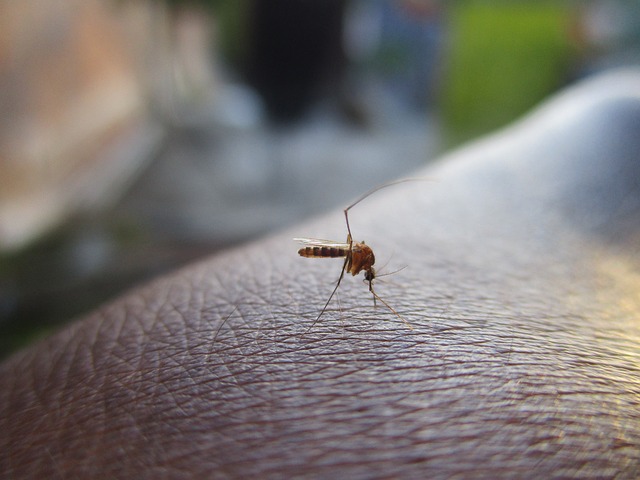What is Malaria ?
Malaria is a serious and sometimes fatal disease caused by parasites that are transmitted to humans through the bites of infected female Anopheles mosquitoes. The disease is prevalent in tropical and subtropical regions.It is preventable and curable with appropriate medications and preventive measures, such as insecticide-treated mosquito nets and indoor residual spraying.
Malaria symptoms
Malaria symptoms typically appear 10 to 15 days after being bitten by an infected mosquito. The symptoms can vary depending on the Plasmodium species, but common symptoms include:
- Fever
- Chills
- Headache
- Muscle and Joint Pain
- Fatigue
- Nausea and Vomiting
- Diarrhea
- Sweating
- Anemia
- Hemoglobinuria
Early diagnosis and treatment are essential to prevent complications and improve outcomes. If you suspect you have malaria, seek medical attention promptly.
How malaria is transmitted ?
Malaria is primarily transmitted through the bites of infected female Anopheles mosquitoes. Here is the transmission process:
- An infected mosquito bites a person, injecting Plasmodium parasites into the bloodstream.
- The parasites travel to the liver, where they mature and multiply.
- The mature parasites re-enter the bloodstream and infect red blood cells. This causes the red blood cells to burst, releasing more parasites and causing the symptoms of malaria.
- If another mosquito bites an infected person, it can pick up the parasites and later transmit them to another person.
In addition to mosquito bites, malaria can also be transmitted through:
Blood transfusions with infected blood.
Organ transplants from an infected donor.
Sharing needles contaminated with infected blood.
From mother to child during pregnancy (congenital malaria).
However, these modes of transmission are much less common than mosquito bites.
How malaria diagnosed ?
Microscopic Examination: A blood smear is examined under a microscope to identify the presence of malaria parasites.
Rapid Diagnostic Tests (RDTs): These tests detect specific antigens produced by malaria parasites. They are quick and do not require special equipment, making them useful in remote areas.
Polymerase Chain Reaction (PCR): This method detects the genetic material of the malaria parasite.
Serology Tests: These tests detect antibodies against malaria parasites.
How malaria affects the human body :
Malaria affects the human body in several ways, primarily by attacking red blood cells and disrupting normal bodily functions. Here’s a breakdown of how malaria impacts the body
- The body’s immune system responds to the infection, resulting in fever, chills, and sweating.
- Some patients may experience respiratory distress, including difficulty breathing and fluid buildup in the lungs.
- Severe malaria can cause hypoglycemia (low blood sugar) and metabolic acidosis (an accumulation of acid in the body).
- Cerebral malaria can lead to seizures, confusion, coma, and, if untreated, can be fatal.
- Nausea, vomiting, and diarrhea can occur, further contributing to dehydration and weakness.
- The Plasmodium parasites invade red blood cells, multiply, and cause the cells to burst.This leads to anemia, characterized by a reduced number of red blood cells and hemoglobin, causing fatigue, weakness, and pale skin.
Home remedies for malaria :
Treating malaria at home should only be considered when immediate medical help is not available. Malaria can be life-threatening, so it’s crucial to seek professional medical treatment as soon as possible. However, if you need to manage symptoms temporarily at home, here are some steps to follow:
Use Antimalarial Prescription Drugs:
Follow the directions on any antimalarial medication recommended to you if you have been diagnosed with malaria. Even if you begin to feel better, make sure you finish the entire term of medication.
Stay Hydrated:
Drink plenty of fluids, such as water, oral rehydration solutions, or clear broths, to prevent dehydration from fever and sweating.
Rest: Get plenty of rest to help your body fight the infection.
Use over-the-counter medications like acetaminophen (paracetamol) or ibuprofen to reduce fever and relieve pain.
Cool Compresses: Apply cool compresses to your forehead and body to help reduce fever.
Avoid Self-Medication:
Do not self-medicate with unprescribed drugs, as inappropriate treatment can lead to drug resistance and complications.
Remember, they are only temporary remedies. Malaria requires professional medical attention, and timely treatment is critical to avoiding complications and ensuring a full recovery.
FAQ :
– Who is at risk of getting malaria?
People living in or traveling to tropical and subtropical regions, such as sub-Saharan Africa, South Asia, and parts of South America, are at higher risk. Young children, pregnant women, and travelers with no previous exposure are particularly vulnerable.
– Can malaria be cured?
Malaria can be cured if treated promptly and appropriately. Early diagnosis and attention to the indicated treatment plan are critical for complete recovery.
– Is there a vaccine for malaria?
Yes, the RTS,S/AS01 (Mosquirix) vaccine is authorized for use in malaria-affected areas. It offers partial protection against Plasmodium falciparum, the most serious malaria parasite.
– How can travelers protect themselves from malaria?
Travelers to malaria-endemic areas should take precautions such as applying insect repellents, sleeping under treated bed nets, wearing protective clothes, and taking prophylactic antimalarial drugs as directed by a healthcare provider.

